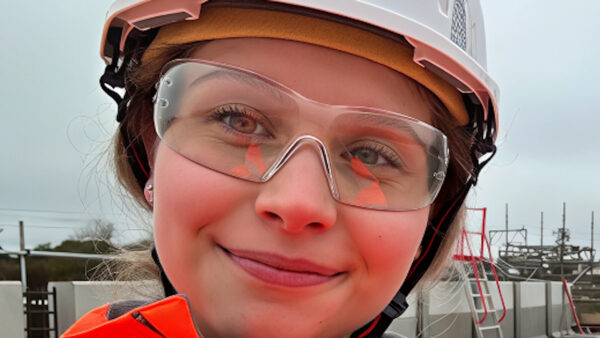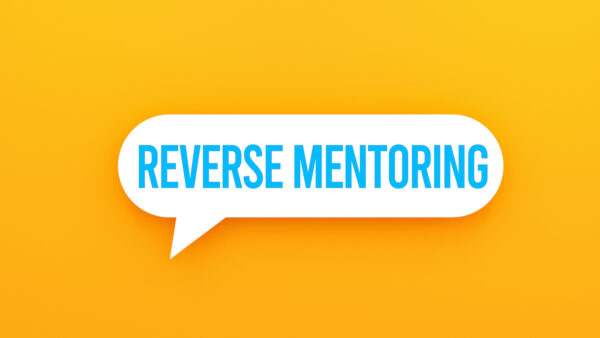
CM readers know how to manage projects, but managing your career can be a lot trickier. So we’ve assembled our panel of experienced Career Consultants to offer a fresh perspective.
Q I’ve recently become a father and I’m keen to spend more time with my baby son. My wife is going back to work, and although her job is more flexible than mine, I don’t want all the stress of combining work and family to fall on her. But at the moment I’m running a £25m job that’s 20 miles from our house, and the driving takes up more time every week. I’ve read about employers offering parents “compressed hours” or nine-day fortnights, but how will that work on a site? I am committed to my career, but it’s not the only thing on my mind at the moment.
A Jeremy Galpin, Costain Group talent and skills manager, says: Congratulations on becoming a father and it’s great to see your commitment to sharing the joys and the work with your wife. The time your son grows up will pass very quickly and you should make every effort to ensure you have a balance in your life that allows you to contribute and support your family as well as achieve your work and career objectives.
Achieving the balance will be a constant and continuous challenge so these would be my top tips:
- make sure your have the right team in place so you can delegate effectively
- develop a successor within your team who can be your number two
- start thinking about the next role you want and start creating time for your own personal development. This should help you focus on delegation.
- review the times you travel – could you leave 30 mins early in both directions and save travelling time?
- consider the feasibility of working from home for some of the week
- remember, it’s not how long you are at work that counts but how effective you are.
Ultimately a good employer will respond positively if you offer a practical business solution that means your job is still delivered but allows you to achieve your personal objectives. If all of the above are insufficient, you could consider reducing your hours for reduced pay or propose another arrangement, that will work, to your employer. All the best.
Q I am a contracts manager, recently made redundant. I’m applying for jobs, but aware that there are now more construction workers looking. My CV is really just a list of my past jobs, and that used to be enough. But what do I need to do to make it stand out from the crowd for the next role?”
A Lynne Crowe, regional manager, Hays Construction, says: It is crucial to demonstrate why this company needs you above anyone else. Your starting point should always be the job description and person specification. Make sure your CV clearly highlights all training and qualifications relevant to the role. Every skill and example of experience will be scrutinised against the job competencies.
Employers will be looking for evidence that you can meet their technical and behavioural needs. List all your relevant experience, quantifying your achievements where possible. In the current climate, containing costs and maximising profit are important, so emphasise how you’ve achieved that in the past projects.
Ensure the information is presented in a layout that is easy to read. Aim for two to four pages in length and apply a consistent layout. Limit yourself to the most relevant work experience and list employers and job roles in reverse chronological order. The last 10 years is more than enough.
You should include a personal statement or profile directly beneath your contact details, as employers will look at this first to obtain a snapshot of your skills and personal qualities. Any gaps in employment must be explained, and if you were made redundant, demonstrate how you used your time wisely, for example enrolling on a course to update your skills.
Q I joined a major consultancy as a non-cognate (my degree was in geography) but I’m now a qualified QS. I’m working on a leisure centre project, but I’m finding it really difficult to get the information I need from the site team and subcontractors. It moves very fast and people don’t tell me about all the variations, although they should. I feel I don’t have the respect of the site team. The project will be over in two months, but how can I make sure it doesn’t happen again? Also, I’m thinking that being a project QS isn’t right for me, I’d like to make a sideways move within the company, but these days the attitude is “you’re lucky to have a job”.
A Hllary Richardson, HR manager, Rider Levitt Bucknall, says: You mention that you’re a non-cognate, but I think that’s not really an issue. You’re a qualified QS, you have gained excellent knowledge of the industry in your training, and wider academic knowledge as well, so you have plenty of to be proud of. You think other people “should” be giving you information. But the way you’re acting clearly isn’t getting respect from the site team, so think about your attitude – maybe it’s a bit whingeing? Put yourself in their shoes, think of what they need and what you can give them. Explain that getting the right information in a timely manner will lead to X, which benefits everyone on the project. If you can give them something they find worthwhile, and helps them in their roles, then they’ll give you more information.
Now you’re also thinking about moving on. If you’re at the right level and ready for a new challenge, and can bring experience and skills to the role that benefits the company, there’s no reason why your employer shouldn’t look on the idea favourably. But if you can turn the situation in your current project around, that definitely puts you in a stronger position. You’ll be able to say “I faced these experiences, but I was able to respond and get people to come on side.”
If you don’t deal with these issues, they will follow you to your next job or project. Address them now and the experience will be invaluable, whatever you end up doing.

Put it to the panel
Did our Career Consultants get it right? Or do you have a question you’d like to ask? Post comments or questions – under a pseudonym if you prefer – below, or email them to [email protected]. And if you’re ready to move on to the next career challenge, look at our new website, www.ciobjobs.com.









Although still employed, I believe that my age (57 years) is against me in terms of seeking new employment. I have sent various recruitment agencies my CV (which excludes my DoB) for positions that I am well qualified to secure. In all cases, the Agency very quickly contact me confirming my suitability and at the same time requesting my DoB. When I query why they need to know, they say that it is essential information for their records. Needless to say, I give them the information but never hear from them again – strange that. I’m suspicious that the DoB information is being used to eliminate me, either by the Agency or Recruiter. Any comments from the panel?
I have been working in the construction industry for more than 30 years, initially as an electrician then progressing through to supervisor and manager.
I and qualified in both building services and construction management, thinking that a combined knowledge and experience in these areas would make my employment safer in future recessions, it would appear not.
Since returning to university and qualifying in 2006 I have only managed one permanent position and lost that due to the company going into liquidation.
I currently live in Glasgow and am willing to travel up to a 50 mile radius for a position, though there does not appear to be any work other than QS or Business Development (sales) in Scotland?
I have traveled and lived in England for 15 years and missed out so much on the family life that I would like to spend time at home and attempt to build a life at home, any suggestions?